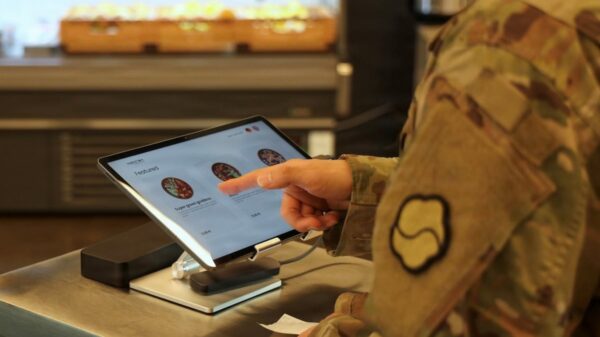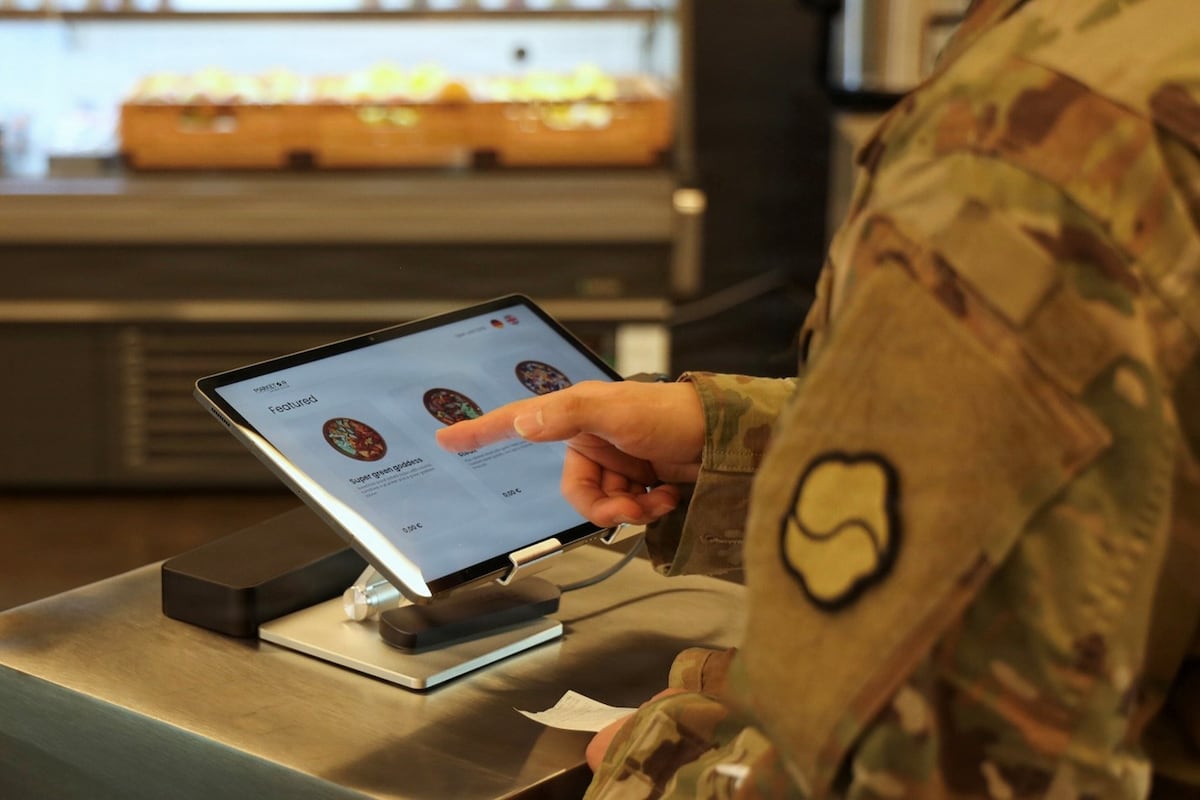The United States Army has initiated a pilot program for an autonomous dining facility at Camp Walker in South Korea. Launched by the 19th Expeditionary Sustainment Command on November 12, 2023, this innovative project, named Market 19, aims to enhance meal service for soldiers and civilians stationed at the base.
In this robotic dining facility, users can select menu items via a touchscreen interface. The system is designed to automatically portion, cook, and plate each meal, utilizing Army recipes to ensure consistency and adherence to nutritional guidelines. The menu features a variety of options, including popular Korean dishes such as bibimbap, kimchi fried rice, and budae jjigae.
While the automated system significantly streamlines food preparation, it does not eliminate the need for human oversight. Chief Warrant Officer River Mitchell, the food advisor for the unit, emphasized the importance of maintaining food safety, ingredient preparation, and quality control, which will still be managed by culinary specialists. “Our culinary specialists will still handle food safety, ingredient prep and quality control,” Mitchell stated, highlighting that the automation is intended to complement existing systems rather than replace the personnel involved.
The initiative aims to provide greater flexibility, allowing soldiers to receive meals “anytime, anywhere.” As Mitchell pointed out, the goal is to free up food service personnel to concentrate on readiness training and enhancing meal quality. He noted, “Automation is one way we can modernize without losing our human touch.”
The pilot program is set to run for six months, during which feedback will be collected to evaluate the potential for the Army to implement robotic kitchens in other locations. This project falls under the Pacific Multi-Domain Training and Experimentation Capability program, an Army Pacific initiative designed to test and assess new technologies that enhance operational effectiveness in the region.
Through this innovative approach, the Army seeks to modernize its food service operations while ensuring that the essential human element remains a core part of its mission. As the pilot progresses, it will be closely monitored for its impact on operations and overall soldier satisfaction.







































































